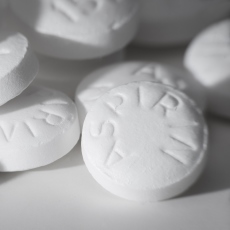
Pain relievers are medicines that reduce or relieve headaches, sore muscles, arthritis, or other aches and pains. There are many different pain medicines, and each one has advantages and risks. Some types of pain respond better to certain medicines than others. Each person may also have a slightly different response to a pain reliever.
Over-the-counter (OTC) medicines are good for many types of pain. There are two main types of OTC pain medicines: acetaminophen (Tylenol) and nonsteroidal anti-inflammatory drugs (NSAIDs). Aspirin, naproxen (Aleve), and ibuprofen (Advil, Motrin) are examples of OTC NSAIDs.
- Pain Relievers (National Library of Medicine)Pain relievers are medicines that reduce or relieve headaches, sore muscles, arthritis, or other aches and pains. There are many different pain medicines, ...
- ... and is not helped by other types of painkillers. When used carefully and under a health care ...
- ... pregnancy Video file Key Points Prescription opioids are painkillers often used for pain after an injury, surgery ... pregnancy. What are prescription opioids? Prescription opioids are painkillers (medicine used to relieve pain) your health care ...
- Drug Addiction (Substance Use Disorder) (Mayo Foundation for Medical Education and Research)Drug Use and Addiction/Start Here ... Drug Use and Addiction ... Mayo Foundation for Medical Education and Research
- ... addiction to opioid drugs, including heroin and narcotic painkillers). Buprenorphine is in a class of medications called ...
- ... addiction to opioid drugs, including heroin and narcotic painkillers) in people who have received buccal or sublingual ...
- ... problems. The combination of alcohol and tranquilizers or painkillers can be deadly. Pregnant women should not take ... illegal "street" drugs. Legal drugs such as laxatives, painkillers, nasal sprays, diet pills, and cough medicines can ...
- Methadone is a very strong painkiller. It is also used to treat opioid addiction. Methadone overdose occurs when someone accidentally or intentionally takes more than the normal ...
- ... may tell you to stop taking all suspect painkillers, particularly OTC medicines. To treat kidney failure, your ... analgesic nephropathy, especially if you have been using painkillers for a long time Blood or solid material ...
- Hydrocodone is a painkiller in the opioid family (related to morphine). Acetaminophen is an over-the-counter medicine used to treat pain and ...



